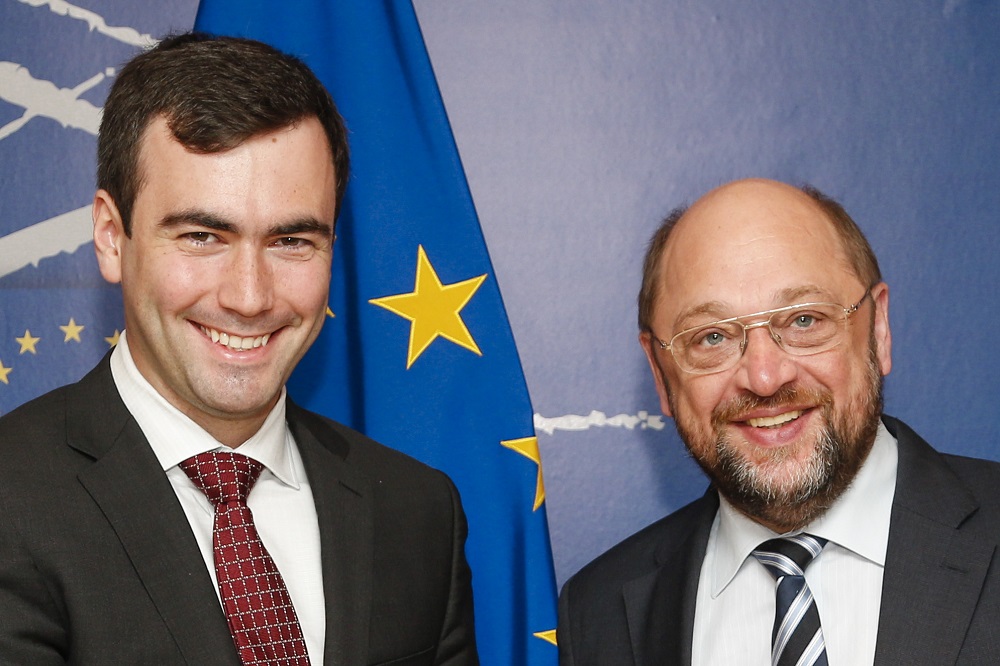Change in Russia is Inevitable, Pavel Khodorkovsky Tells European Parliament

Eliminating political opponents by locking them up through contrived prosecutions is a strategy doomed to failure, Pavel Khodorkovsky, president of the Institute of Modern Russia, told Members of the European Parliament in Brussels today at a special hearing to honour his father Mikhail Khodorkovsky’s 50th birthday.
Pavel pointed to the Kremlin’s on-going crackdown against civil society as a sign that the regime can only respond to dissent with more repression – an approach that would ultimately undermine the government’s legitimacy further and lead to profound political change.
Mikhail Khodorkovsky, who has been in custody since October 2003 and has spent nearly a decade behind bars, turns 50 on 26 June.
Pavel thanked parliamentarians for their support and solidarity with his father, and stressed that political pressure from the European Union on the Kremlin was more important than ever in the current climate of fear and intimidation in Russia.
Pavel also told participants at the hearing of his fears that his father could face a third set of charges before his scheduled release in late 2014, designed to keep him locked up for many more years to come.
Appearing alongside Pavel at the hearing were Lyudmila Alexeyeva of the Moscow Helsinki Group, former Russian premier and leading opposition figure Mikhail Kasyanov, Memorial activist Anna Karetnikova, Mikhail Khodorkovsky’s lead trial lawyer Vadim Klyuvgant, who is also representing defendants from the Bolotnaya Square protest last year, and Vladimir Kara-Murza from the Russian opposition coordinating council.
“It’s clear that as opposition to the regime increases, the authorities will have to use political repression more frequently, and more aggressively,” Pavel said. “If President Putin truly cared about the future of the Russian people, he would reform. But reform is not part of the Kremlin’s vocabulary because it risks compromising the entire edifice on which he has built his power. The regime’s response to opposition is instinctively to silence it somehow, either by locking up individuals, such as my father, or by using law enforcement to intimidate and subdue the citizenry. But I am an optimist, and I say that things in Russia will get better. I have faith in the Russian people. We are simply too smart, too stubborn and too globalised to go on like this. We have experienced a degree of economic freedom and now we are demanding genuine democratic freedom too. The example of Europe is an inspiration here, because ultimately the desire of citizens to build a better society cannot be stopped. I want to extend to Members of the European Parliament my father’s profound thanks for your constant solidarity. And I want to thank the ALDE group for its patronage of this important event, which marks his fiftieth birthday later this month. This support sustains him through dark and difficult times – the absence of his family, his physical isolation, and the dizzying legal merry-go-round that characterises his case. Help me secure his release, so that he might become a symbol of progress and change in Russia, instead of being a symbol of regression and stagnation. But help me secure his release, more than anything so that he might enjoy the simplest and most precious human pleasures that we all take for granted – like holding his grand-daughter in his arms, and meeting my wife, his daughter-in-law, for the first time.”
The video of Pavel’s remarks will be available soon.



